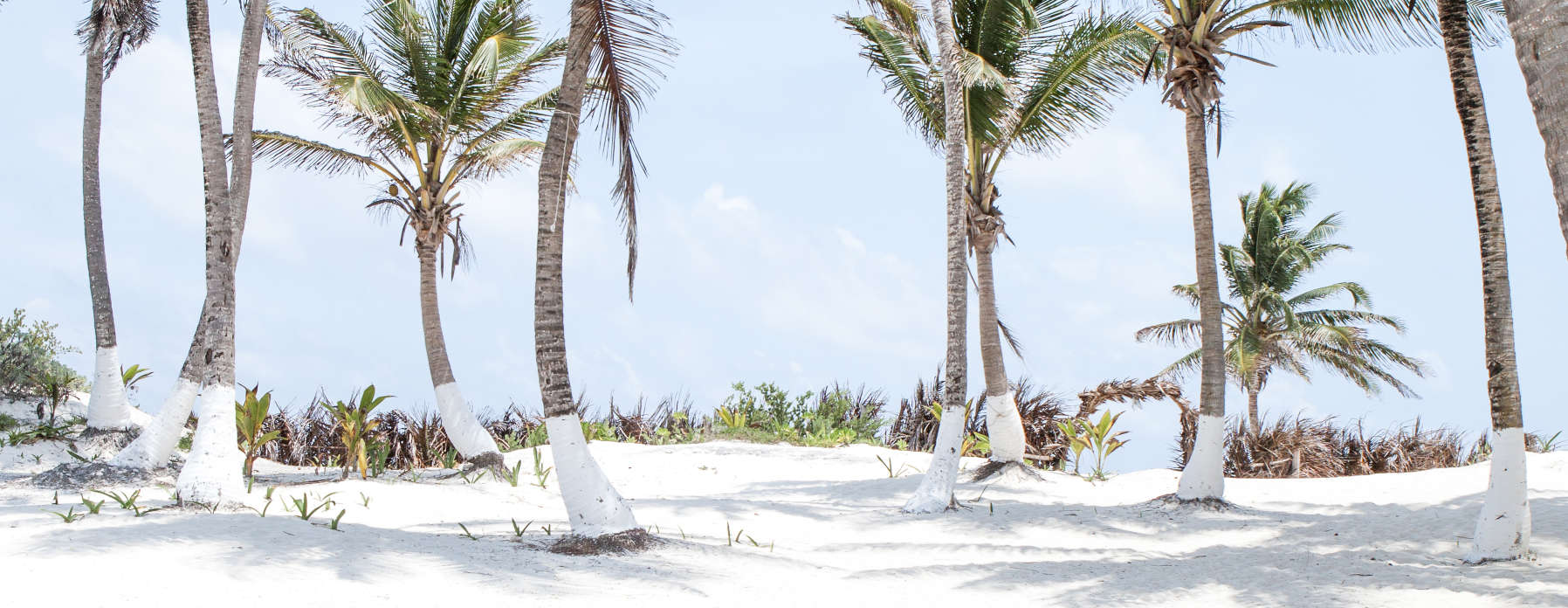From beautiful beaches and sandy stretches to fruit and spice filled green hills, Grenada is brimming with all kinds of things to do, see, try and experience. With tropical skies and waving palms (and the occasional short lived but often dramatic thunderstorm), Grenada is an island guaranteed to make you fall in love with the Caribbean. Take a look at our guide of things to know before travelling to Grenada…
Climate and Weather in Grenada
Grenada’s weather is what you would expect from a tropical island found slap bang in the middle of the Caribbean. It boasts balmy temperatures that flirt with the 30s for most of the year, with June to November facing the hottest days as well as the rainiest, followed by a short cool season (temperatures only dip to the mid-20s so don’t panic) from December to March. The centre of the island is hilly and tropical and is home to an equatorial climate where rain falls frequently, and the temperature is often a little lower. Although this spice island often faces rain, downpours and thunderstorms are usually short but intense, so won’t leave you without sunshine for too long and the sea is warm enough for swimming throughout the year.
Food and Drink in Grenada
Grenada is known for its spices, earning it the title of ‘Spice Island’, and for good reason. Visitors can find anything from ginger, nutmeg and cinnamon to cloves, turmeric and lemongrass, making for some deliciously aromatic cuisine that draws inspiration from all corners of the world, particularly Asia and Africa. The island’s fresh produce is phenomenal, from sweet coconuts and succulent mangos to local dishes using the most flavourful seafood and local meat with plenty of home-grown spices. Of course, this delicious fresh food couldn’t be washed down by anything other than traditional rum punch and followed by a cube or two of the island’s moreish rich chocolate.
Language in Grenada
English is Grenada’s official language, although it is not the language typically spoken by residents. There is a variety of dialects also spoken by its citizens, but Grenadian Creole English and, less often, Grenadian Creole French or 'patois' in more rural areas. The majority of people on the island speak English so you shouldn’t have any problems with communication.
Health and Safety in Grenada
Grenada has been categorised as having a risk of Zika virus transmission which is transmitted by mosquitos during daylight hours and is common in towns and cities. Using mosquito repellents is recommended. Cases of Chikungunya virus and Dengue virus have also been confirmed, so taking steps to avoid being bitten by mosquitoes is highly recommended.
It is recommended that tourists take great care when swimming in the ocean as currents can be deceptively strong and not all beaches have lifeguards or warning flags. Crime levels are low in Grenada, but taking the usual sensible precautions is recommended, including locking doors and windows at night, avoiding isolated areas and beaches after dark, and leaving valuables and travel documents in a safe. It is recommended that tourists only use licensed taxis and take particular care at night, especially during the festival season.
Things to do in Grenada
Food, history and culture fill this little island. From visiting the Nutmeg Processing Cooperative with drafty, fragrance-filled rooms and rows and rows of drying racks, to getting a bird’s eye view of the island at Fort George, the oldest fort on Grenada, or even just spending the days enjoying languid lunches on the beach, Grenada really won’t let you down. If chilled cocktails and liquor traditions are up your street, then head to the River Antoine Rum Distillery, or if there is an art afficionado in your party, venture to the Underwater Sculpture Park where you can spot over 80 pieces of art slowly becoming encrusted with beautiful coral growth.
Transport in Grenada
Cars drive on the same side as the UK, on the left, but you will need a local temporary driving license to hire a car, which can be obtained at any car rental agency on the island. You must present a valid UK driving licence. Take care when driving at night as some roads are unlit. Many roads are riddled with potholes and blind corners, and indicators are not always used. Public transport is available and cheaper than taxis, but minibus drivers may exceed the speed limit. Taxis aren’t metered, so make sure to agree the fare in local currency with the driver before you set off.
Additional Information
The Eastern Caribbean dollar is the main currency in Grenada, and the US dollar is accepted by most businesses on the island. The drinking age is 18 years old.


